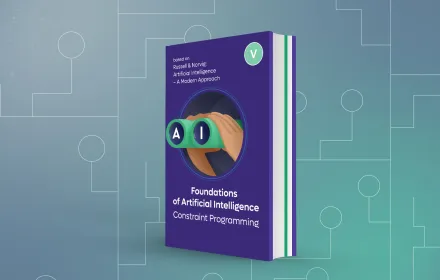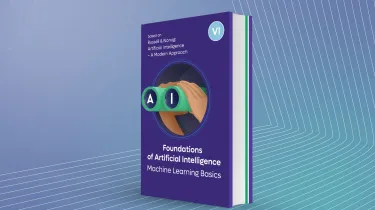Methoden der KI V - Constraint Reasoning
Der Kurs führt in Modellierungsmethoden und Algorithmen für Constraint Programming ein, die in der KI zur Lösung von Constraint Satisfaction und Optimierungsproblemen eingesetzt werden.

Übersicht
Dieser Kurs führt in die Constraint-Modellierungssprache MiniZinc ein. MiniZinc ist eine ausdrucksstarke und einfach zu verwendende Modellierungssprache für Optimierungsprobleme, die eine Schnittstelle zu vielen modernen KI-Optimierungsalgorithmen bietet. Zahlreiche praktische Beispiele veranschaulichen die Verwendung von MiniZinc zur Modellierung praktischer Probleme.
Der Kurs gibt auch Einblicke in die algorithmischen Methoden, die es modernen CP-SAT-Solvern wie Googles OR-Tools oder Microsofts Z3 ermöglichen, große Optimierungsprobleme erfolgreich zu lösen.
Dieser Kurs basiert teilweise auf Kapitel 6 des Lehrbuchs von Stuart Russell und Peter Norvig: Introduction to Artificial Intelligence - A Modern Approach, erweitert das Thema aber um umfangreiches Zusatzmaterial.
Der Kurs wird in englischer Sprache mit deutschen Untertiteln gehalten.
Welche Themen werden behandelt?
- Constraint Satisfaction und Constraint Optimization Probleme
- Modellierung praktischer Anwendungen mithilfe verschiedener Arten von Constraints
- MiniZinc Modellierungssprache und IDE
- Fortgeschrittene Techniken in CP-SAT Solvern
- Lazy clause generation
- Backjumping
- Conflict-directed clause learning
Was werde ich erreichen?
Am Ende des Kurses sind Sie in der Lage
- Probleme in der Praxis zu identifizieren, die mit constraint satisfaction und constraint optimization Methoden gelöst werden können,
- einfache Constraintprobleme mit MiniZinc zu modellieren,
- die algorithmischen Techniken zu verstehen, die von modernen CP-SAT-Lösern verwendet werden.
Welche Voraussetzungen muss ich erfüllen?
Ein gutes Verständnis der Logik ist eine Voraussetzung, um dem theoretischen Material dieses Kurses folgen zu können. Der Kurs "Methods of AI III – Logisches Denken" bietet eine gute Einführung in die Logik.




